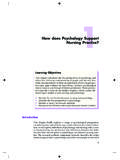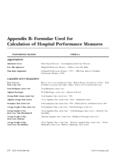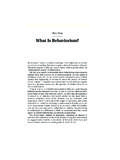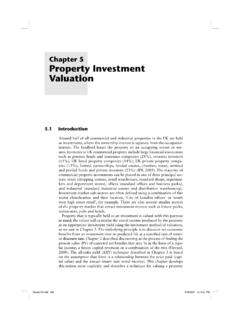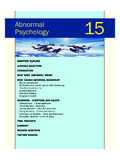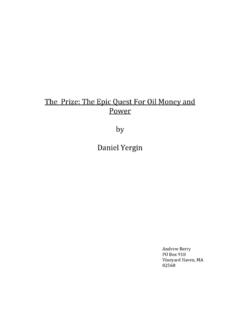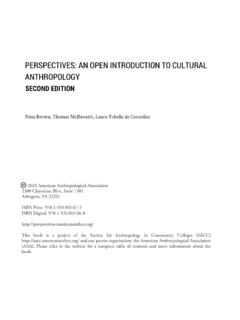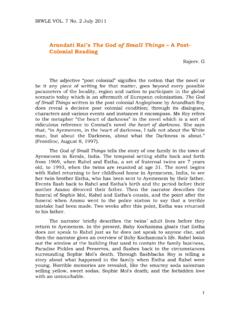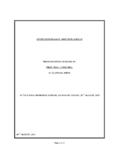Transcription of From Peasant Studies to Agrarian Change - Wiley-Blackwell
1 From Peasant Studies to Agrarian Change1 From Peasant Studies to Agrarian ChangeHENRY BERNSTEIN AND TERENCE J. BYRESThis inaugural essay surveys themes and approaches in Agrarian politicaleconomy over the last three decades, especially with reference to contributionsto, and debates in, the Journal of Peasant Studies of which Byres waseditor from 1973 to 2000 and Henry Bernstein editor from 1985 to 2000. Weindicate intellectual strengths and lacunae, new approaches to longstandingissues, and new concerns which emerged over that period, and which inform theproject of this new Journal of Agrarian Change and the challenges it words: Agrarian Change , capitalism, class analysis, development,peasants, political economyWe are pleased to introduce this inaugural issue of the Journal of Agrarian Change (JAC). While the title is new, the intellectual project of the journal inevitably hasits own history and context. To present our version of the nature, trajectory andchallenges of that intellectual project is fitting: it serves as a discipline for us asfounding editors of JAC and as a statement of intent to our contributors andreaders.
2 To do this requires reference to the Journal of Peasant Studies (JPS), ofwhich Byres was the founder, with Charles Curwen and Teodor Shanin,and joint editor from 1973 to 2000, with Henry Bernstein joint editor from 1985to 2000 (the final issue we edited was Vol. 27 No. 4 of July 2000). Of course,those nearly three decades of our association with JPS, charted in its volumes 1 27, witnessed great changes in the world economic and social, political andideological and with them major shifts in intellectual concerns and fashions,not least (if hardly exclusively) as the latter are produced and consumed in theacademies of Europe and North by these observations, this introductory statement is divided intothree parts. First it sketches the context and concerns of the 1960s and early 1970swhich generated the formation (and title) of JPS; second, it identifies aspectsof the course of JPS the themes and approaches it encompassed from 1973to 2000; finally, it suggests how this new Journal of Agrarian Change seeks topresent and encourage scholarship and debate that illuminate processes of agrarianchange, both historical and contemporary, through the perspectives of politicaleconomy.
3 Blackwell Publishers Ltd, Henry Bernstein and Terence J. Byres of Agrarian Change , Vol. 1 No. 1, January 2001, pp. 1 Bernstein and Terence J. Byres, respectively Department of Development Studies and De-partment of Economics, School of Oriental and African Studies , University of London, ThornhaughStreet, Russell Square, London WC1H 0XG, UK. e-mail: (Henry ( Byres)2 Henry Bernstein and Terence J. ByresPEASANT Studies : A FOUNDING MOMENTThe origins of JPS have been sketched by Byres (1994), to which readers Several features of his brief account merit selective emphasis and elabora-tion for present purposes. Byres described how JPS emerged from the PeasantsSeminar of the University of London, which he convened with Charles Curwenfrom 1972 to 1989, and highlighted the synergy between that long-running sem-inar and JPS (Byres 1994, and forthcoming). The aim of the seminar was to pro-vide a stimulus to, and forum for, the consideration of issues of Agrarian Change ,increasingly recognized to be as important as they were largely neglected andinadequately researched.)
4 Those issues concerned peasantries and their social struc-tures; the nature and logic of Peasant agriculture; peasantries and their moralcommunities ; and peasants and politics (Byres 1994, 2). These are indeed verybroad themes , as Byres noted, but they incorporated a specific and pointedcharge in the conditions of intellectual work in the 1960s and 1970s for reason, and an enduring preoccupation, was the effort to understandbetter the problems and prospects of economic and social development of poorercountries (only recently independent of colonial rule in most of Asia and Africa),in which the Peasant is a very essential factor of the population, production andpolitical power as Engels (1970, 457) had remarked of France and Germanysome 80 years earlier. A second and connected reason (in addition to its intrinsicinterest) was the commitment to exploring and testing the possible contributionsto such understanding of knowledge of (i) pre-capitalist Agrarian formationsin different parts of the world, (ii) paths of Agrarian Change in transitions tocapitalism in the now developed countries and (iii) the dynamics of agrariantransformation or lack of transformation in Latin American, Asian and Africanexperiences of colonialism, and the legacies of those dynamics for subsequentprocesses of , if historical and comparative approaches to issues of development/underdevelopment in poor countries related the study of peasantries to the pathsof development of capitalism (and their pre-capitalist antecedents), the contempor-ary Peasant question (or better Peasant questions ) also resonated the concerns ofanti-imperialism and transitions to socialism.
5 Two of the defining global momentsof the 1960s and early 1970s were the Vietnamese war of national liberationagainst US imperialism and the Great Proletarian Cultural Revolution and itsaftermath in China. While international progressive support for the former wasunanimous, together with recognition of its social base in the peasantry ofVietnam, comprehending the baffling course of the latter and the role in it ofChina s hundreds of millions of rural producers generated (or further pro-voked) a range of sharp and symptomatic disagreements about the conditions,1 The individuals involved in producing JPS from 1973 to 1994 are listed by Byres (1994, 1 2). Theonly significant Change thereafter until Vol. 27 No. 4 of July 2000 was that Tom Brass s tenure asjoint editor from October 1990 (Vol. 18 No. 1) ended in July 1998 (Vol. 25 No. 4).From Peasant Studies to Agrarian Change3strategies and prospects of socialist development, and specifically socialist agrar-ian transformation, in poor countries.
6 Of course, casting its long shadow overthose disagreements was the first and fateful experience of social revolution andcollectivization of agriculture in a mostly Agrarian society, that of the USSR (seenote 4 below).In sum, these were some of the principal preoccupations of the Peasant Sem-inar and the founding moment of the Journal of Peasant Studies . What were theintellectual resources then available to get to grips with these concerns? First, thiswas a moment of intense interest in Marxist Yet, while often rich inanalytical suggestion and insight, the reflections of classic Marxism on mattersagrarian are fragmentary at best, constrained, inevitably, by the circumstancesand preoccupations they addressed. In the context of the 1960s and early 1970s,marked by the intensity of continuing national liberation struggles (in Africa aswell as Asia, and of rural guerilla movements in Latin America), and by theincreasingly evident difficulties of capitalist development in poor countries withlarge Peasant populations, it was probably above all the influence of Maoism thatdemanded a response and inflected the quest for a new Peasant Studies thatcould engage effectively with the dramatic events of the time.
7 The claims ofMaoism, in effect, forced attention on peasantries beyond the classic Marxistmotifs (or at least the principally European zones they addressed) of their place intransitions to capitalism (Marx, Lenin), in socialist primitive accumulation (Lenin,Preobrazhensky, Bukharin, Trotsky, Stalin), and in class struggle in conditionsof (emergent) bourgeois democracy (Marx, Kautsky).3 Whether those claims2 Both reflecting and stimulating this interest were the first English translations of important textstaken up by the emergent Peasant Studies , including the first full translation of Marx s Grundrisse,published in 1973 (an English language edition of extracts from the Grundrisse on Pre-Capitalist Eco-nomic Formations had been published in 1964); Marx s theorization of the formal and real subsumptionof labour by capital, published as an Appendix to Ben Fowkes new translation of volume 1 ofCapital in 1976; and notable editions of selections from Gramsci s Prison Notebooks (1971), Letters fromPrison (1975) and Political Writings, 1910 1920 (1977).
8 Kautsky s The Agrarian Question only becameavailable to anglophone readers in a full translation in 1988, although a translation of extracts fromthe French edition by Jairus Banaji (1976b) attracted wide attention. There were also English lan-guage editions of texts by leading protagonists of the Bolshevik debates of the 1920s, for example,Preobrazhensky (1965, 1980) and Bukharin (1971). In addition to the official Selected Works, writingsof Mao Zedong appeared in new editions of translation and commentary, for example Schram (1969,1974). The efflorescence of Marxist intellectual work and debate in British and North Americanuniversities added journals like Antipode, Capital and Class, Critique of Anthropology, History Workshop,Journal of Contemporary Asia, Race and Class, Radical Sociology, Review of African Political Economy andReview of Radical Political Economy as well as the Journal of Peasant Studies to existing independentsocialist journals like Monthly Review and Science and Society in the USA and New Left Review inBritain.
9 See also note concerns of classic Marxism were focused on the problematic of the transition from feudalismto capitalism, in both its western European heartlands and the adjacent zones of incomplete trans-ition/ backwardness (what would later be called underdevelopment ) in southern and easternEurope. JPS was to publish a number of articles on Spain, southern Italy and Greece, and on Russiabefore the October revolution and during the 1920s. We should not forget, however, the importanceof analyses of imperialism by Lenin and others to subsequent work on development/underdevelop-ment in the peripheries of imperialism. For example, Rosa Luxemburg s The Accumulation of Capital(1963) was an important theoretical influence on the formulation, in the 1960s and 1970s, of thearticulation of modes of production to explain specific forms of Agrarian underdevelopment, andtheir reproduction, in the conditions of capitalist Bernstein and Terence J.
10 Byresamounted to filling gaps in classic Marxism, or to its fundamental revision (inthe direction of Third Worldism , peasants as the revolutionary force of thecurrent epoch, etc.), demanded attention and response across a wide terrain ofanalytical, empirical and political the circumstances thus sketched, a second intellectual stimulus and resource noted by Byres (1994) was the recent appearance of a number of works that, intheir various ways, had a major impact on an emergent Peasant Studies . Byrescited Eric Wolf s textbook on Peasants (1966, and his equally seminal PeasantWars of the Twentieth Century, 1969), Barrington Moore Jr s study of The SocialOrigins of Dictatorship and Democracy. Lord and Peasant in the Making of the ModernWorld (1966) and the first English translation of Chayanov, The Theory ofPeasant Economy (1966, written in the 1920s).4 Wolf and Barrington Moore Jrwere major figures of critical dissent from the mainstream orthodoxies of theAmerican academy, whose writings served to illuminate some of the tensionsand lacunae in the traditions of classic Marxism.




